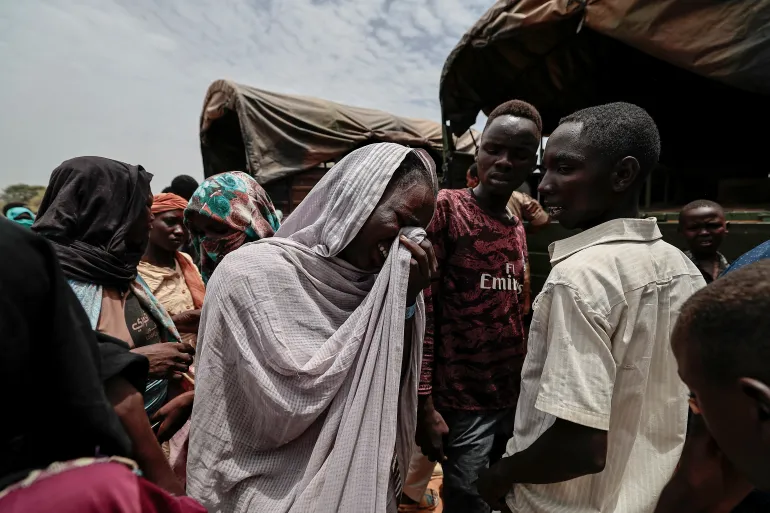Human Rights Watch (HRW) on Monday accused the paramilitary Rapid Support Forces (RSF) and allied militias, at war with the army, of committing widespread sexual violence against women in southern Sudan.
It is the latest such report by international monitors alleging sexual violence during Sudan’s 20-month war which has led to what the United States called the world’s worst humanitarian crisis.
In its new report, HRW said it had documented dozens of cases since September 2023 involving women and girls aged between seven and 50 who were subjected to sexual violence, including gang rape and sexual slavery, in South Kordofan state.
The latest details follow a separate report last week from the New York-based watchdog which more broadly accused the RSF and allied Arab militias of carrying out numerous abuses, mainly against ethnic Nuba civilians, in South Kordofan state from December 2023 to March 2024.
- Confusion at CCT as Umar, Kogo parade selves as chairman
- 2027: Lukman urges OBJ, Gowon, IBB, others to float new party
These attacks, it said, “had not been widely reported” and constituted “war crimes”.
In October, the United Nations Independent International Fact-Finding Mission for the Sudan said both sides have committed abuses including torture and sexual violence.
But it accused the paramilitaries, in particular, of “sexual violence on a large scale”, including “gang rapes and abducting and detaining victims in conditions that amount to sexual slavery”.
“The sheer scale of sexual violence we have documented in Sudan is staggering,” said Mohamed Chande Othman, chair of the fact-finding mission.
The RSF dismissed the UN findings as “social media propaganda”.
Speaking to reporters in Nairobi last month, RSF member Mohamad Mokhtar said the paramilitaries documented only one rape in areas under their control, adding that they had carried out “medical checks” on women to verify rape allegations.
The conflict, which erupted in mid-April 2023, has claimed the lives of tens of thousands of people, internally displaced more than eight million, according to the UN, and forced more than three million others to seek safety in neighbouring countries.

 Join Daily Trust WhatsApp Community For Quick Access To News and Happenings Around You.
Join Daily Trust WhatsApp Community For Quick Access To News and Happenings Around You.


